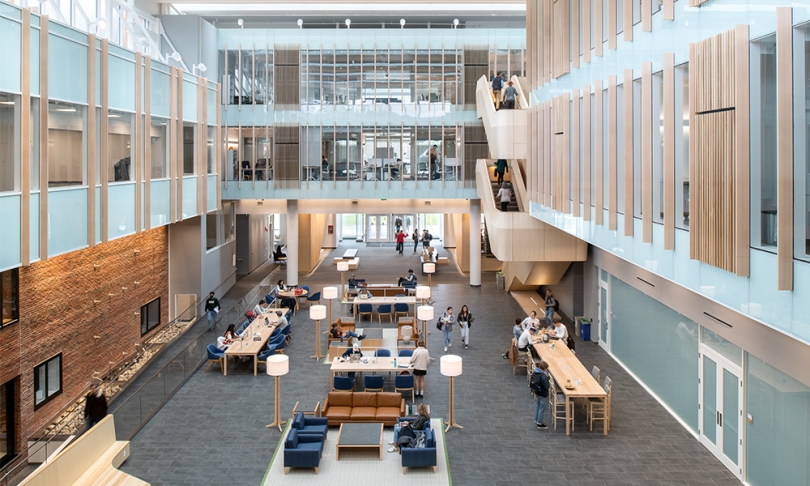
- About
- Education
- Research
- Thought Leadership
- Engagement
- News & Events
Back to Top Nav
Back to Top Nav
Back to Top Nav
Back to Top Nav
Back to Top Nav
As the global energy transition progresses, the demand is growing for leaders who can shape energy systems that are affordable, reliable, and equitable. Dartmouth's Master of Energy Transition (MET) curriculum is grounded in interdisciplinary learning, with a consistent emphasis on the energy transition's impact on social systems and community well-being, locally and globally.
Dartmouth's non-thesis, professional Master of Energy Transition (MET) program prepares you to make an immediate impact in the clean energy transition. With in-person courses on Dartmouth's scenic campus, you'll benefit from meaningful connections with instructors, fellow students, guest speakers, and industry and nonprofit partners, all in a collaborative academic setting.
Experiential learning is a cornerstone of the MET curriculum. Throughout the program, you'll be immersed in real-world scenario projects, in partnership with cross-sector organizations committed to decarbonization and sustainability. Each project serves as a mini-internship, connecting you with professional contacts and equipping you with skills to implement directly in your career.
The MET program spans three academic terms. During each 10-week term, you'll complete three courses. Our courses are organized into three thematic areas.
Fall term | ENTR 110: Technology of Current & Future Energy Systems
Winter term | ENTR 140: Data Analytics for Energy & Climate
Spring term | ENTR 170: Energy Systems Modeling
Fall term | ENTR 120: Team Dynamics & Professional Communications
Winter term | ENTR 150: Energy Markets & Economics
Spring term | ENTR 180: Finance & Accounting for the Energy Transition
Fall term | ENTR 130: Climate Science & the Energy Transition
Winter term | ENTR 160: Energy Law & Policy
Spring term | ENTR 190: Community & Global Resilience in Energy Transitions
Situated between the Thayer School of Engineering and Tuck School of Business, with a direct view of the iconic Baker-Berry Library, the Institute serves as a hub of innovation, research, and collaboration.
Our award-winning certified LEED Platinum facility was named 2024 Building of the Year by the New Hampshire Chapter of the U.S. Green Building Council (USGBC). The building was also awarded the prestigious American Institute of Architects (AIA) Committee on the Environment (COTE) 2025 Top Ten Award, recognizing sustainable design excellence. Inside, you'll find flexible classrooms, collaborative project spaces, and the inviting Fern Coffee and Tea Bar, ideal for a break between classes.

Tuesday, November 11
1-2 pm EST
Join us online via Zoom to learn more about how you can help power a more sustainable, climate-stable future through our Master of Energy Transition (MET) degree program. You'll meet our faculty director, program director, and other MET team members.
As a special bonus, after attending, your application fee for the MET will be waived!
Apply for the Master of Energy Transition via the Guarini School
Sign up to receive more details about the Master of Energy Transition